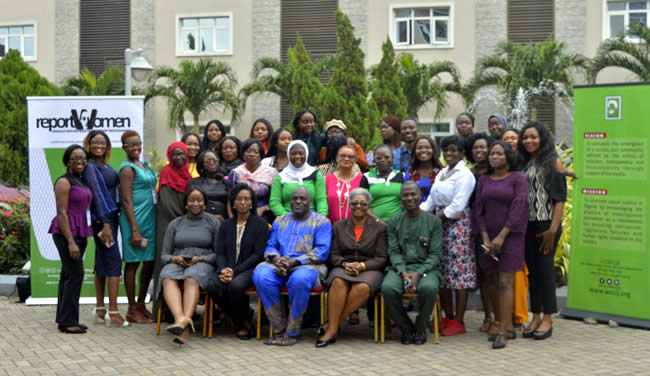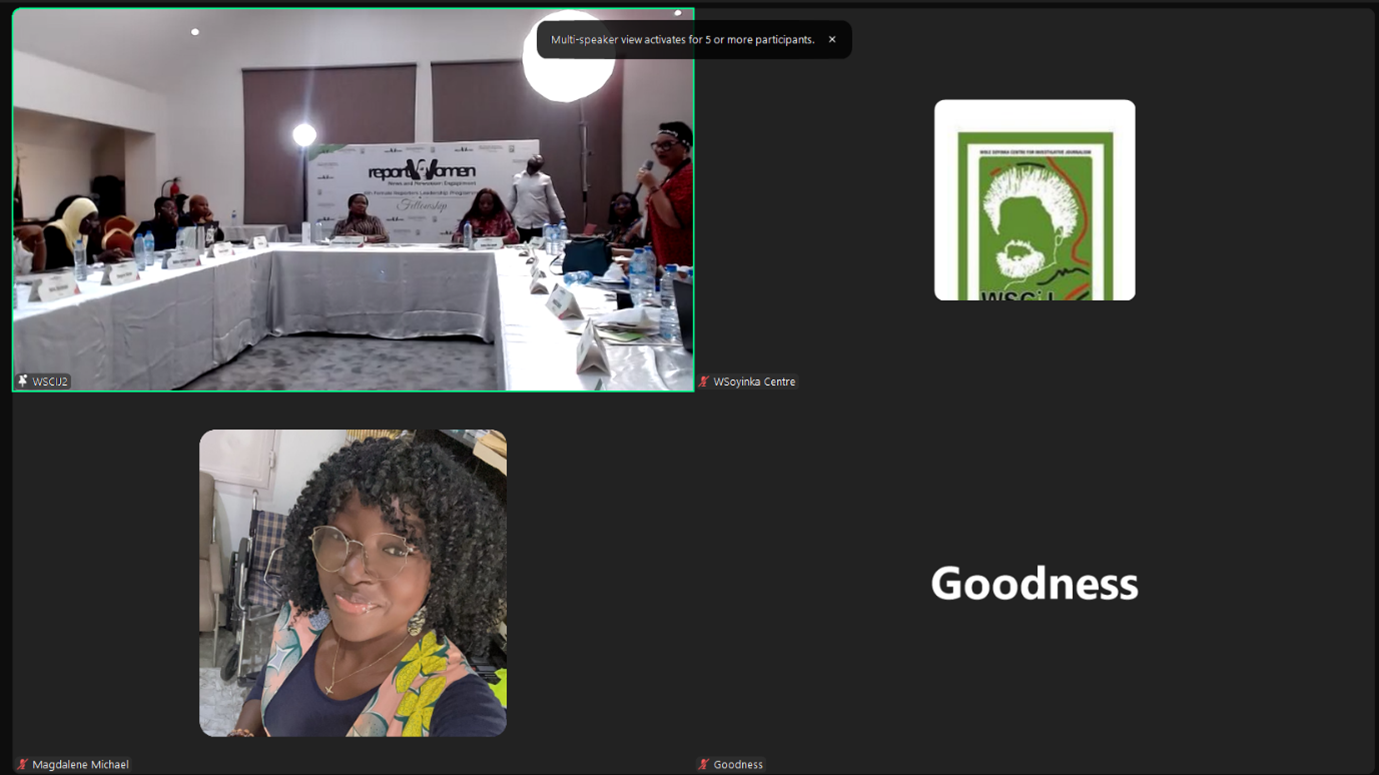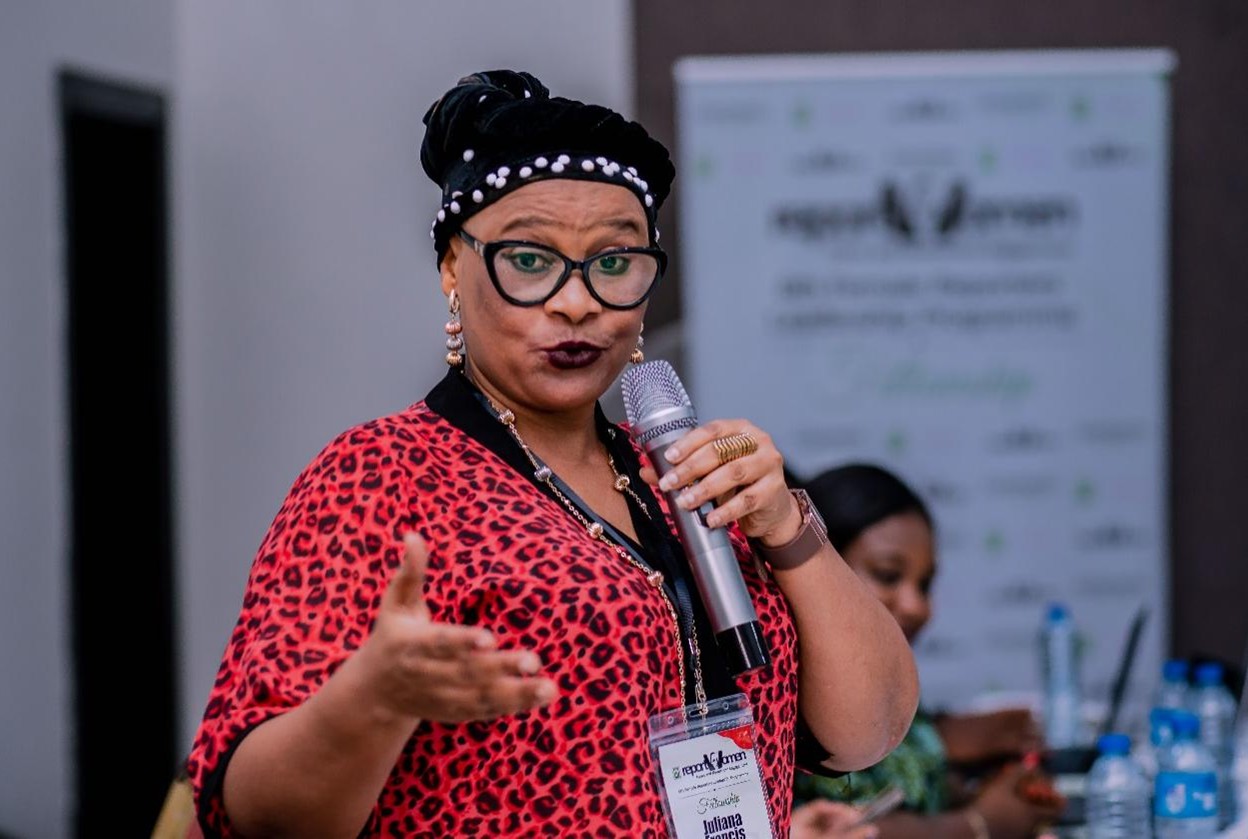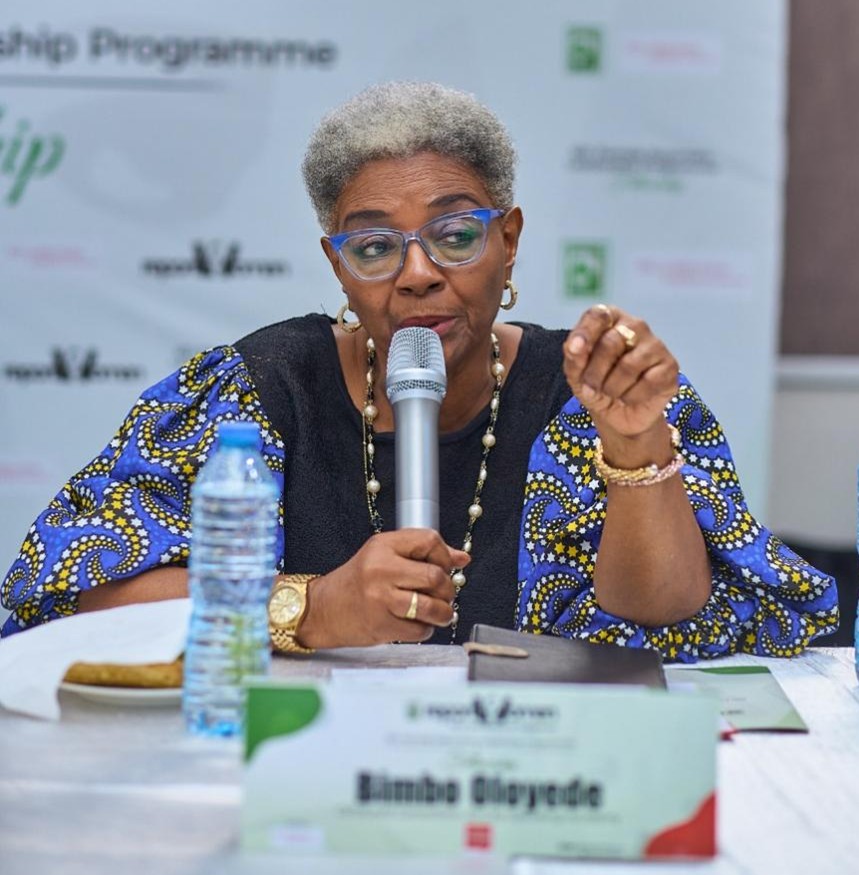The Wole Soyinka Centre for Investigative Journalism (WSCIJ), alongside other media practitioners and Civil Society Organisations tasked Nigerians on creating safe places for women and girls during the ReportWomen! Female Reporters Leadership Programme (FRLP) Share-Fair and Tweet Conference held in Lagos on 10th and 11th September 2019.
The programme opened on 10th September with the learning, sharing and accountability meeting tagged ‘Share-Fair’ where the 2019 cohort of the FRLP fellowship gathered to share their various experiences and challenges, so far, implementing their leadership and story projects.
Bimbo Oloyede, a veteran broadcaster and founder/CEO strictly Speaking, along three other resource persons/mentors – Lekan Otufodunrin, Executive Director, Media Career Development Network; Nneka Okekearu, Deputy Director, Enterprise Development Centre, Pan African University; and Rotimi Sankore, Editorial Board Chair, Nigeria Info Radio Group, facilitated at the event. Also, Chioma Agwuegbo, Founder, TechHer and Ayodele Osowobi, Executive Director, Stand to End Rape (STER) were panelists with Rotimi Sankore during the Tweet Conference on 11th September 2019.
Ayodele Osowobi, a rape survivor, who has since channelled her hurt into helping other women and girls find healing and justice said, “A safe place is a place where women and girls feel physically and emotionally safe – with absence of trauma, excessive stress, violence or abuse. It’s a space where women and girls enjoy the freedom to express themselves without the fear of judgement or harm”.
She further stated, “to achieve safe spaces for women and girls, there is need to focus on leadership and empowerment of women and girls; client/survivor centred approach; safe and accessible spaces; community involvement – coordinated and multi-sectorial”
“All girls deserve to feel safe and the government must play their part!” Nneka Okekearu stressed this in one of her tweets. To further corroborate this, Juliana Francis, a crime editor and 2017 FRLP Fellow, said, “Our protest against violations of women and girls is not a dash, it’s a marathon. We march on until the government begins to do the needful.”
Whilst responding to a question on the economic benefit of creating safe spaces for girls, Rotimi Sankore explained that ensuring safe spaces for girls and women at home, school, work and communities has huge values and benefits for upholding rights, achieving goals and aspirations which also translates into economic value for women and by extension the society.
In addition, one of the 2019 cohort of the FRLP fellowship, Justina Asishana in a tweet asserted, “ensuring safe places for women and girls can unlock the potentials of women and girls. It can also encourage more participation in institutions and initiatives relevant to peacebuilding.”
Bimbo Oloyede affirmed, “safe spaces cannot be limited to the physical alone. Women should also create safe spaces within their minds and dispositions.” She believes it begins from the soul.
Chioma Agwuegbo tweeted, “I, however, believe we must keep (and even increase) the energy with which we tell women to protect themselves in telling men not to abuse or violate or be violent with women. If there is no abuse, we won’t need ‘safe spaces’ to discuss it.”
Osowobi maintained that the culture of silence, which is the reason why most gender-based violence cases go unreported, can be deconstructed through change in public perception, creating safe spaces and encouraging more survivors to speak up.
Tackling the silence issue as well, Rotimi Sankore stated, “it’s important to question when things are institutionalised and backed by law and religion.”
The platform made room for a robust conversation with focus on such areas as understanding what a safe place is and why women and girls need protected spaces, creating safe spaces for rape victims and children, to the culture of silence and how it has fanned the perpetration of sexual violence, to ensuring safety and inclusion in public spaces as well as creating safe cities free of violence against women and girls – the role of security agencies and legal prosecution, to the relevance of naming and shaming sex offenders and gender disparity with its patriarchal power play.
The WSCIJ charges Nigerians to take the conversation forward beyond social media to the streets, marketplaces, institutions and every space where girls and women are found.








